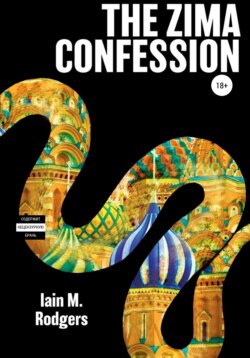Читать книгу The Zima Confession - Iain M Rodgers - Страница 15
14. The Bridge
ОглавлениеPeople swarmed towards Richard and bustled past. Most of the swarm was heading south, as he was, pouring out of the City, streaming across London Bridge and disappearing into the station named after it. But some of the most agitated and determined ones were, for some reason, going against the flow.
A seagull swept through the air, holding its wings out rigidly to be carried by the wind. Richard imagined what the seagull, looking down, would think of the human folly it observed.
And suddenly Richard too was high above it all, looking down on himself and seeing his stupid mistake with chilling clarity.
He was trapped. He could see the bridge spanning the Thames from north to south and the river itself beneath, running west to east. He could see himself, by now halfway across, being carried along with the flow of humanity – just another anonymous member of the multitude on the left-hand pavement, busily progressing to the South Bank. To his right, traffic flowed freely in each direction, and on the far right-hand side other members of the agitated nest bustled past each other.
His attention focussed on the person he knew to be himself. He could see through this person’s coat and into the pocket where the memory stick was clutched in his fist.
What if someone accidentally jostled him? What if a pickpocket decided that he was an easy target?
What if the members of the swarm, still blandly unaware of his intentions, somehow sensed the threat to their hive and turned on him?
He would lose a memory stick that was worth around a fiver, but was irreplaceable. He would lose his chance to change the course of history.
He saw the melee developing. From above he watched the swarm converging on him. Then, looking through his own eyes, faces full of fury. But that was from a future which, although it was foreseen, had not yet happened.
And then he felt a twinge of guilt. These were people, not members of a hive or nest. These were the very people he intended to destroy. Wealthy bankers, City workers, spoilt middle-class Londoners with pleasant jobs that all relied on financial services.
In his guilt he realised they would be justified in turning on him. It wasn’t likely; nevertheless he tried to think of a way of escape. But of course, there was no way of escape. He began to realise he was no more trapped here on the bridge than anywhere else. He would be vulnerable wherever he went. He just had to get home as soon as possible.
All he had to do was get himself, his laptop bag containing both envelopes, and the memory stick in his pocket, back home. But it wasn’t easy when every passer-by might somehow realise you were a ticking time bomb.
And then a surge of rage boiled up within him. It wasn’t easy when you gave in to feelings of guilt. He gripped the memory stick until he felt it would cut into his hand. These were the very people on whom guilt or pity was wasted. They had to be destroyed for the good of humanity.
